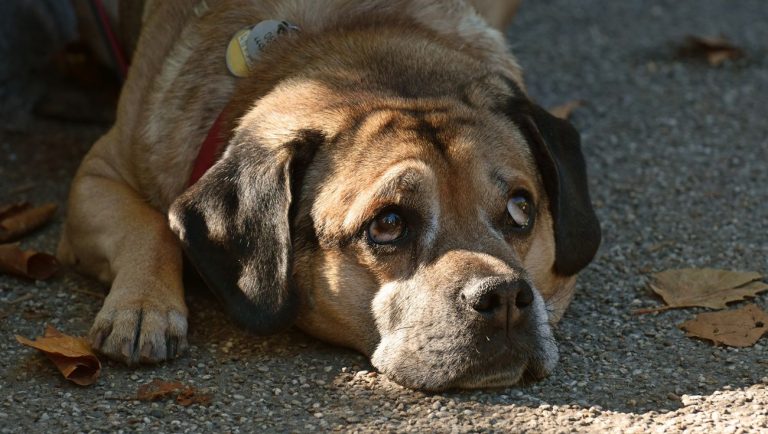Keeping Senior Dogs Healthy: Six Essential Habits for a Happy and Long Life
Our canine companions bring immeasurable joy to our lives. As they age, however, their needs change, and understanding these changes is crucial to ensuring their continued well-being. While the definition of a senior dog can vary by breed and size (generally starting between 6 and 13 years old), proactive care can significantly extend their lifespan and improve their quality of life. It’s never too late to begin implementing healthy habits for your aging dog. Let’s explore six essential steps you can take today.
1. Nourishing Your Senior Dog with the Right Diet: The Foundation of Longevity
Maintaining a healthy weight is paramount for senior dogs. Studies reveal a staggering statistic: nearly 53% of dogs are overweight or obese. This isn’t just a cosmetic issue; obesity dramatically reduces lifespan, increases the risk of various cancers and metabolic diseases like diabetes, and contributes to debilitating orthopedic complications. Feeding your senior dog a balanced diet with the right amount of high-quality ingredients is fundamental. Consult your veterinarian for recommendations tailored to your dog’s specific needs and weight goals. Avoid overfeeding, and pay close attention to portion sizes. Choose foods formulated for senior dogs, which typically contain adjusted levels of protein, fat, and fiber to support their changing needs.
2. Maintaining Mobility and Comfort: Exercise for the Aging Canine
While a sedentary lifestyle might seem appealing to an aging dog, regular exercise remains crucial for maintaining weight, joint health, and overall well-being. Even short, daily walks can make a significant difference. As dogs age, they might become less enthusiastic about physical activity; however, gentle exercise, coupled with patience and positive reinforcement, helps to maintain muscle mass, improve circulation, and prevent stiffness. Adapt the intensity and duration of exercise to your dog’s capabilities. Consider shorter, more frequent walks instead of one long walk if needed. Swimming is an excellent low-impact exercise option for senior dogs with joint problems.
3. Regular Veterinary Checkups: Proactive Health Management
Regular veterinary care is non-negotiable for senior dogs. Sadly, only about 14% of senior animals receive recommended regular health checks. Senior dogs should ideally have checkups every six months. These visits aren’t just about addressing immediate concerns; they are crucial for early disease detection. Regular checkups establish baseline health indicators, allowing veterinarians to identify potential problems early on, even before symptoms appear. This proactive approach enables timely intervention, improving treatment outcomes and extending your dog’s quality of life. Discuss any concerns or changes in your dog’s behavior with your veterinarian.
4. Prioritizing Dental Hygiene: A Key Component of Overall Health
Dental health significantly impacts a senior dog’s overall well-being. As dogs age, they become more susceptible to periodontal disease, which can lead to pain, infections, and even systemic health problems. Regular brushing, professional dental cleanings (as recommended by your vet), and specialized dental chews can help prevent these issues. Your veterinarian can assess your dog’s teeth and gums, identify potential problems, and guide you on appropriate home care. Don’t underestimate the importance of maintaining a healthy mouth for your senior companion.
5. Preventing Infectious Diseases and Parasites: Tailored Vaccination Strategies
While all dogs need protection from parasites like fleas, ticks, and heartworms, the vaccination schedule for senior dogs requires careful consideration. Age-related changes in their immune system and lifestyle may necessitate adjustments to their vaccination protocols. This doesn’t mean vaccinations become unnecessary; it simply means a more tailored approach is required. Discuss your dog’s vaccination needs with your veterinarian to determine which vaccines remain essential and the appropriate timing for administration. Maintaining adequate parasite prevention remains crucial throughout their senior years.
6. Regular Grooming: Maintaining Coat and Skin Health
Regular grooming is especially important for senior dogs, particularly those with long hair. Brushing not only promotes healthy hair and skin but also allows for early detection of skin conditions, lumps, or other abnormalities. Regular grooming provides an opportunity to examine your dog’s body for any signs of illness or injury. It’s a valuable opportunity to bond with your furry friend, promoting their physical and emotional well-being. Consult your groomer or veterinarian for advice on appropriate grooming techniques for your senior dog’s specific coat type and condition.
By diligently implementing these six essential habits, you can significantly enhance the quality of life for your senior dog, helping them enjoy their golden years in comfort, health, and happiness. Remember, consistent care and attention are the keys to providing a fulfilling and extended life for your beloved canine companion. Consult your veterinarian regularly to address any specific concerns or tailor these recommendations to your dog’s individual needs.

